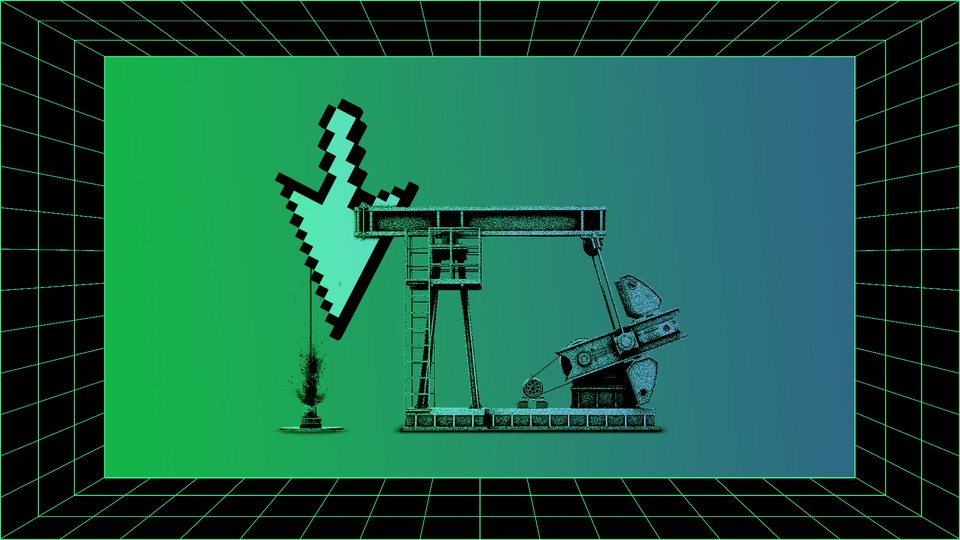Microsoft Is Luring Fossil-Fuel Companies With AI
3 min read
This is Atlantic Intelligence, a newsletter in which our writers help you wrap your mind around artificial intelligence and a new machine age. Sign up here.
Today, The Atlantic published a new investigation by contributing writer Karen Hao detailing Microsoft’s recent engagements with the oil and gas industries. Although the tech giant has spoken of the potential for AI to remake our world for the better and stave off climate change, behind the scenes, it has sought to market the technology to fossil-fuel companies to aid in drilling, among other applications. Karen spoke with 15 current and former Microsoft employees and read through hundreds of internal documents for her report.
Fundamentally, this is a story about tension—between two points of view within Microsoft, and between the supposed promise of a technology and its actual uses in the here and now. Sustainability advocates within Microsoft have clashed with leadership over its pursuit of this business. And although Microsoft has maintained that AI could be used to make fossil-fuel companies more efficient, thereby making their work more sustainable, critics aren’t so sure. “The idea that AI’s climate benefits will outpace its environmental costs is largely speculative,” Karen writes, “especially given that generative-AI tools are themselves tremendously resource-hungry. Within the next six years, the data centers required to develop and run the kinds of next-generation AI models that Microsoft is investing in may use more power than all of India. They will be cooled by millions upon millions of gallons of water. All the while, scientists agree, the world will get warmer, its climate more extreme.”

Microsoft’s Hypocrisy on AI
By Karen Hao
Microsoft executives have been thinking lately about the end of the world. In a white paper published late last year, Brad Smith, the company’s vice chair and president, and Melanie Nakagawa, its chief sustainability officer, described a “planetary crisis” that AI could help solve. Imagine an AI-assisted tool that helps reduce food waste, to name one example from the document, or some future technology that could “expedite decarbonization” by using AI to invent new designs for green tech.
But as Microsoft attempts to buoy its reputation as an AI leader in climate innovation, the company is also selling its AI to fossil-fuel companies. Hundreds of pages of internal documents I’ve obtained, plus interviews I’ve conducted over the past year with 15 current and former employees and executives, show that the tech giant has sought to market the technology to companies such as ExxonMobil and Chevron as a powerful tool for finding and developing new oil and gas reserves and maximizing their production—all while publicly committing to dramatically reduce emissions.
Read the full article.
What to Read Next
- OpenAI’s big reset: “With its new model, the company wants you to think ChatGPT is human,” Matteo Wong writes.
- Also by Matteo: The real AI threat starts when the polls close. “Whichever candidate loses in November will have an easy scapegoat,” he writes.
P.S.
Last week, I went viral on X and Threads after using generative AI to replace every icon on my phone’s home screen with a bespoke image of Kermit the Frog. I wrote about the experience—and what it reveals about AI—for The Atlantic.
— Damon



